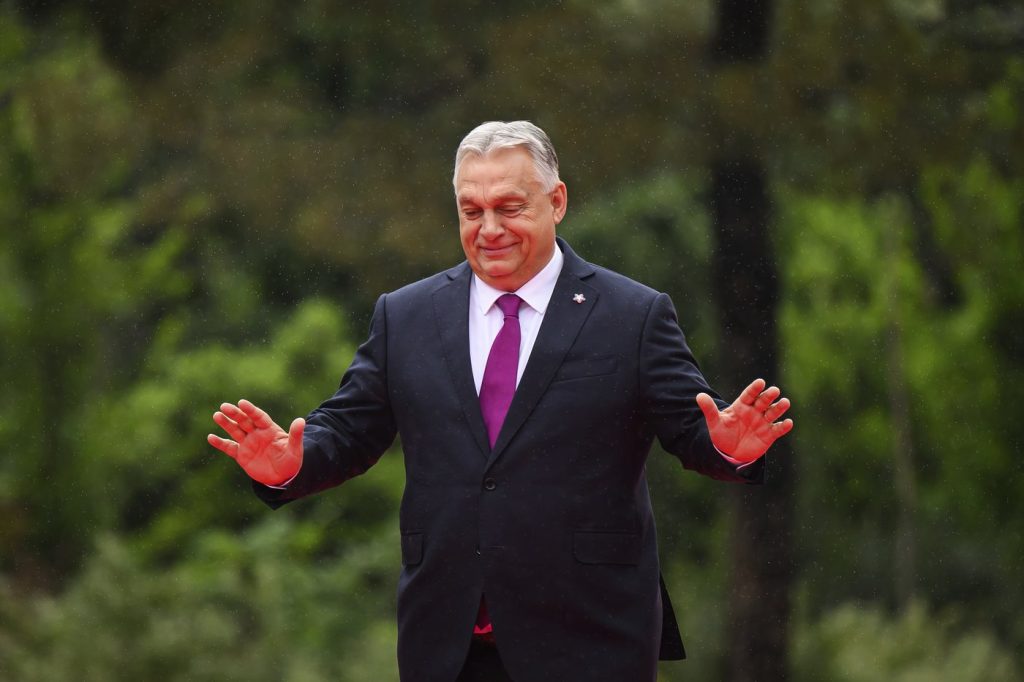BUDAPEST, Hungary (AP) – A mass protest took place in Hungary on Sunday, attracting around 10,000 demonstrators who rallied against the recent actions of the right-wing government led by Prime Minister Viktor Orbán. Protesters labeled the demonstration as an act of resistance against the government's increasing restrictions on basic rights and its crackdown on independent media.
This gathering comes in the wake of a controversial bill submitted by a lawmaker from Orbán's Fidesz party. The proposed legislation would grant the government the authority to monitor, restrict, penalize, and potentially ban media outlets and non-governmental organizations (NGOs) that are characterized as threats to Hungary's sovereignty. The bill is reminiscent of Russia's "foreign agent" law and is likely to pass in parliament, where the Fidesz party enjoys a two-thirds majority.
Many of Orbán’s opponents view this bill as one of the most repressive measures he has implemented in his 15 years of governance. Protesters gathered at the square next to Hungary’s parliament in central Budapest to voice their opposition to the legislation. If passed, the bill would allow the government to blacklist organizations receiving any financial support from abroad, subjecting them to extensive monitoring, searches, significant fines, and potential bans on their operations.
Politicians within Orbán's party and the Sovereignty Protection Office, a government body tasked with identifying alleged threats to sovereignty, have explicitly targeted various media outlets and anti-corruption organizations, accusing them of serving foreign interests. During the protest, speaker Jakab Tóth remarked that the bill represents a “threat against people being able to express their opinions clearly and freely.” He emphasized the government's responsibility to safeguard citizens' sovereignty regarding free speech and participation in public life.
As polls indicate that Orbán may face his most significant challenge to power in the next elections scheduled for 2024, he has suggested that foreign interests—primarily from the United States and neighboring Ukraine—are attempting to manipulate independent media and anti-corruption watchdogs to undermine his government. In response, these organizations have staunchly denied such allegations, asserting that their work is conducted to uphold professional standards and serve the public interest.
Over the years, Orbán has progressively enacted crackdowns on NGOs and independent media, introducing laws that critics claim aim to stigmatize and obstruct organizations focused on vulnerable groups and corruption transparency. These efforts intensified in 2023 with the establishment of the Sovereignty Protection Office, which investigates NGOs and media outlets that are perceived to exert foreign influence.
The newly introduced bill outlines a broad definition of what constitutes a threat to sovereignty. Organizations may be targeted if they challenge or criticize Hungary’s democratic values, national unity, traditional family structures, or Christian culture, indicating that even legitimate dissent could be classified as a national security issue.
This demonstration follows two and a half months of weekly protests against an anti-LGBTQ+ law that was passed in March. The law prohibits Pride events and permits authorities to utilize facial recognition technology to identify attendees. The government maintains that its policies on LGBTQ+ rights are essential for the protection of children against what it calls “gender madness.” However, many critics argue these measures serve to foment animosity towards sexual minorities and mobilize Orbán's right-wing base ahead of the upcoming elections.











